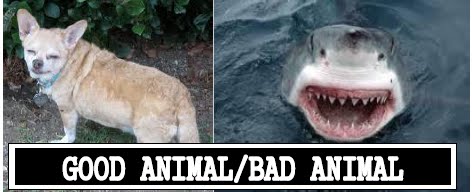The nation mourns a slain stag while the unbearable emptiness of life without Paul the Octopus begins to settle like a dark veil across Europe. Conspiracy theories already abound. Some say the head of the Exmoor Emperor now adorns the wall of some wealthy European villa. His glazed eyes, we speculate, now stare abjectly as Pierre tucks into a choco croissant before jumping on the Metro down to La Defense.
Meanwhile a sole Chinese investigator is trapped in a Kafkaesque nightmare, desperately telling the truth about Paul the Octopus. He has been dead for three months, we are informed, and replaced by a colluding doppelganger. Unpatriotic premonitions were too much for vengeful German football fans – and so Paul became Paella.
Why though do we care? Are Paul and the Emperor not mere beasts, simplistic genetic programmes to eat, sleep, shag and shit. Is not the only difference between them the differing vessels that their genes have involved to best meet the requirements of their respective environments?
It seems not for anthropomorphism is rife in coverage of their demises. Words like ‘noble’ abound with reference to the stag whilst Paul’s powers are as ever, a mystery in these sceptical times. Yet, despite all this, the systematic slaughter of numerous other beasts keeps its mechanistic pace, disregarded by the population at large. The only time I have heard people talking about the Emperor was in a greasy spoon.
Two snacking builders bemoaned his loss over a cup of tea and the fried and grizzled hide of a pig, lovingly slapped between 2 slices of white bread. The irony was as thick as the accumulating grease but, such contradictions are entirely symbolic of the world we find ourselves in.
A just launched initiative launched by the national trust goes to the root of this
disconnect. On the basis of the fact that 26% of teenagers believe that bacon comes from sheep, and that children are more likely to recognise a dalek that a magpie, the trust are tackling this issue head on;
“we can’t ignore the fact that, whether through pressures of time or physical access, as a nation we seem to be increasingly disconnected from the fabric of the country and there is a real danger of a ‘generational gap’ opening up where young people feel terrified at the prospect of going into the countryside.” says Fiona Reynolds of the Trust.
How then did we get to this state? Why is it that in the wired and febrile imaginations of the 21st centuries first generation the rolling downs and meadows of Exmoor are as likely to be populated by creatures from the BBC prop department as they are by magpies and sheep?
This is the great riddle of modernity and its answer is fundamental to our cognitive architecture.
